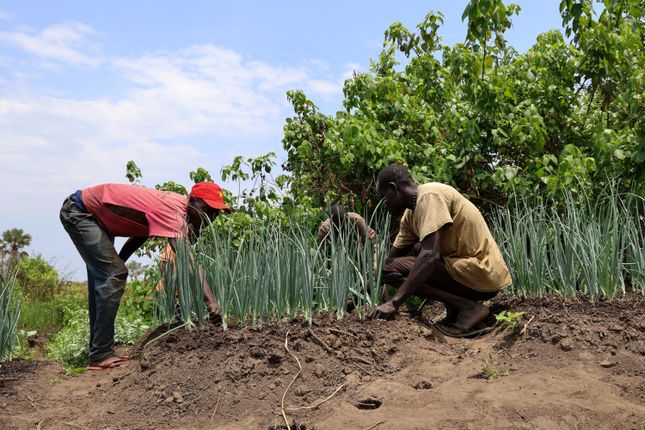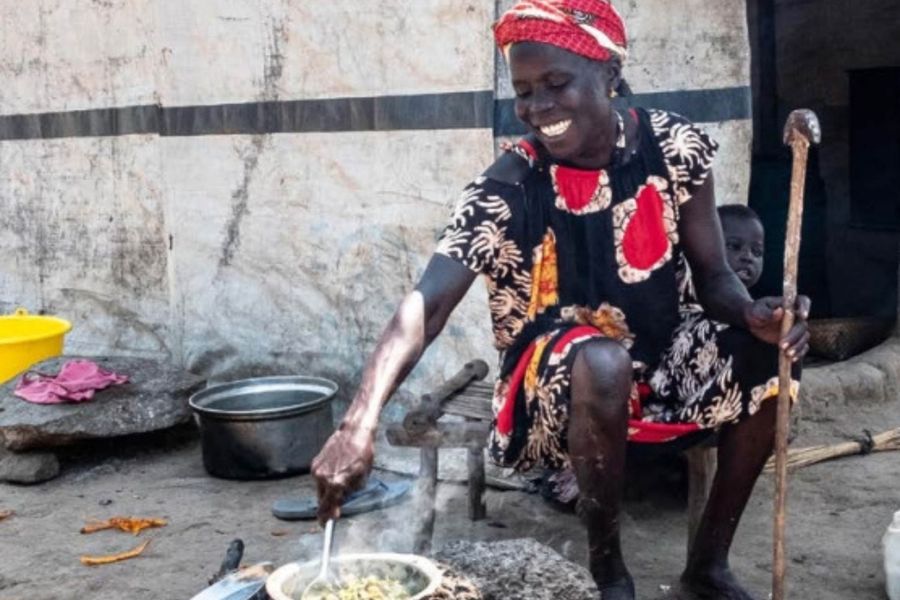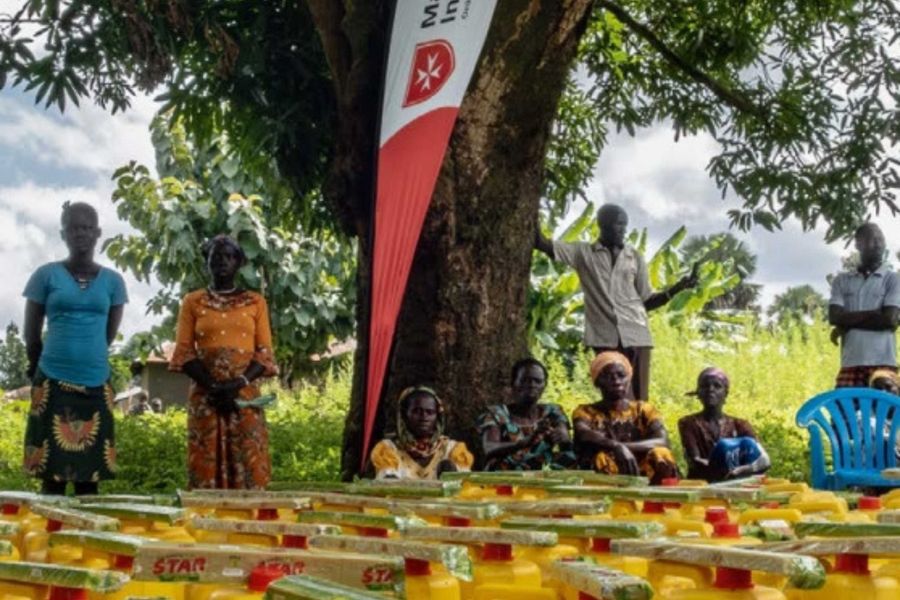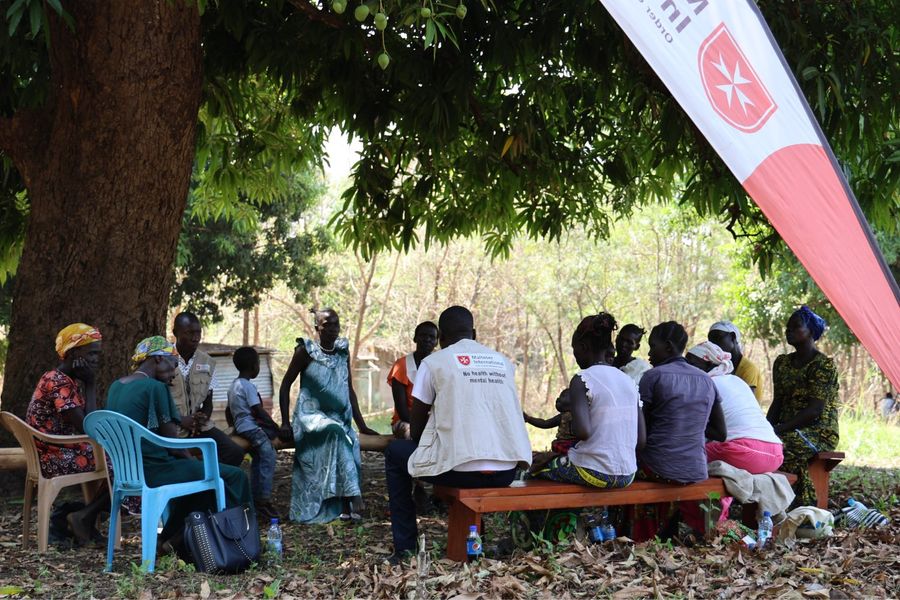
South Sudan: Humanitarian aid, development cooperation and peacebuilding
“My name is Betty Keji James. I come from Mukaya. I am 38 years old. We ran from there because of the fighting between government and the rebels.” Betty is one of around two million people in South Sudan currently displaced internally by the ongoing violence in their country.

The civil war has had a dramatic impact on the population of South Sudan: Of the 12.4 million inhabitants, nine million people depend on humanitarian aid alone, and around 5.8 million people are affected by acute food insecurity (UN OCHA, as of February 2024).
Betty lives with her children in an unofficial camp for internally displaced people in Atende, a small town near the Yei long-distance railroad, directly on the road to the capital Juba. The camp, home to almost 2,000 people, lies on one side of the road, with the village of Atende on the other. Here, the 38-year-old is now active in a “smallholder farmers group” set up by Malteser International (MI). In these groups, partakers receive training in agricultural cultivation methods to better provide for themselves and their families by growing their own vegetables. Participants can also take advantage of mental health coaching to help them deal with their traumatic experiences.
"I work very hard so we can achieve good harvests and send our children to school. In the next growing season, I would like to increase my yield so that I can open a grovery shop that will provide me and my family with a better livelihood. When I arrived in Atende, I had a lot of Traumas. Since I have been taking part in the mental health coaching sessions, I am calmer and feel less stress," says Betty.

“Our work in Atende is a good example of the practical application of the Humanitarian-Development-Peace Nexus at MI,” says Roland Hansen, Head of the Africa Department at MI. This approach promotes closely integrating humanitarian aid, development cooperation and peacebuilding. The MI regional program supporting displaced persons in South Sudan and neighboring countries with their HDP Nexus focus is the subject of a government-funded study by the Bonn International Centre for Conflict Studies on the relationship between humanitarian aid, development cooperation and peace research.
In Atende, MI combines its humanitarian aid activities – distributing water canisters, soap and ibriq, which are colored plastic cans for washing hands – with long-term activities like smallholder farmersʼ groups to improve the livelihoods of displaced people in the long run.
Peacebuilding in Atende

The aid measures are supplemented by project components to promote peaceful coexistence in the communities. At Atende Primary School, which is attended by children from both the original community and the camp for internally displaced persons, students regularly receive information from experienced therapists on topics like anger management, bullying, discrimination, and exclusion. The aim is to establish these techniques in the families through the school, thereby reducing problems such as domestic or gender-specific violence and contributing to a more peaceful community overall.
Since the end of 2023, there has also been a school garden in Atende where pupils learn the basics of agricultural practices. In 2024, the training of women’s groups in soap production and pottery will also begin in order to provide participants with new job opportunities and better future prospects.
(August 2024)








